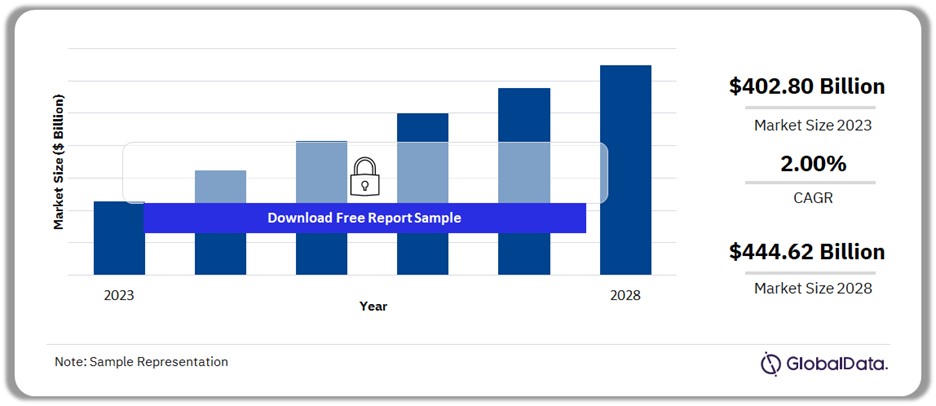The client computing technology market is dominated by major hardware manufacturers and technology companies offering devices like laptops, desktops, tablets, and thin clients. The competition is shaped by innovation, performance, security features, and the ability to meet the demands of diverse consumer and enterprise markets.

Buy the Full Report for More Insights into the Client Computing Market Forecast
Below is a detailed analysis of the key players and their market positioning:
1. HP Inc.
- Overview: HP is a leading player in the global client computing market, offering a wide range of laptops, desktops, and workstations tailored to consumer and business needs.
- Competitive Advantage:
- Strong portfolio in both entry-level and premium segments.
- Emphasis on hybrid work solutions with enhanced security and collaboration features.
- Focus on sustainable devices using recycled materials.
- Market Share: HP consistently ranks among the top three PC vendors globally, with a market share of approximately 20%-25% in the personal computer segment.
2. Lenovo Group Ltd.
- Overview: Lenovo is the world’s largest PC vendor, renowned for its ThinkPad, Yoga, and IdeaPad series.
- Competitive Advantage:
- Robust presence across all price points and form factors.
- Strong enterprise appeal through durable and performance-oriented devices.
- Investment in innovation, including foldable screens and modular designs.
- Market Share: Lenovo commands a global market share of around 23%-25%, making it a dominant player in the client computing space.
3. Dell Technologies
- Overview: Dell caters to both consumer and enterprise markets, with products like XPS, Inspiron, and Latitude laptops, as well as Precision workstations.
- Competitive Advantage:
- Strength in enterprise and professional markets, offering devices optimized for security and performance.
- Commitment to innovation, particularly in display technology and thermal management.
- Eco-conscious design initiatives targeting sustainability.
- Market Share: Dell holds a global market share of approximately 17%-19%, with strong traction in the US and enterprise segments.
4. Apple Inc.
- Overview: Apple’s MacBook and iMac product lines dominate the premium computing market, driven by innovation and seamless ecosystem integration.
- Competitive Advantage:
- Proprietary M-series chips deliver unparalleled performance and energy efficiency.
- Strong brand loyalty and user experience across devices and operating systems.
- Focus on sustainability with eco-friendly materials and renewable energy usage.
- Market Share: Apple has a global PC market share of 7%-10%, with dominance in the high-end segment.
5. Acer Inc.
- Overview: Acer specializes in affordable devices, gaming PCs, and Chromebooks for education and budget-conscious users.
- Competitive Advantage:
- Competitive pricing and strong presence in emerging markets.
- Leadership in the Chromebook segment, catering to education and enterprise users.
- Diversified portfolio, including gaming-focused Predator and Nitro series.
- Market Share: Acer holds a global market share of 6%-8%, with a strong foothold in the Chromebook and gaming PC markets.
6. ASUS
- Overview: ASUS is a major player known for its innovative ZenBook, ROG (Republic of Gamers), and VivoBook product lines.
- Competitive Advantage:
- Leading-edge designs and innovations in gaming and ultrabooks.
- Focus on high-performance components and unique form factors.
- Strong appeal to gamers and creative professionals.
- Market Share: ASUS accounts for 6%-8% of the global client computing market, excelling in gaming and premium ultrabooks.
7. Microsoft
- Overview: Microsoft is a key player with its Surface product line, focusing on premium devices optimized for Windows.
- Competitive Advantage:
- Tight integration of hardware and software for seamless performance.
- Innovative form factors, including detachable screens and Surface Duo devices.
- Appeal to professionals and creative users requiring high mobility.
- Market Share: Although smaller in share, Microsoft has a niche presence in the high-end market, particularly in hybrid and enterprise environments.
8. Samsung Electronics
- Overview: Samsung leverages its expertise in displays and components to produce innovative tablets, laptops, and Chromebooks.
- Competitive Advantage:
- Advanced display technologies, including AMOLED screens.
- Strong integration with its mobile ecosystem (Galaxy smartphones and tablets).
- Emphasis on 5G-enabled devices for enhanced connectivity.
- Market Share: Samsung’s share is modest but growing, particularly in tablets and mobile-first computing devices.
9. Google (Chromebooks)
- Overview: Google leads the Chromebook ecosystem, focusing on cloud-based computing for education and enterprise.
- Competitive Advantage:
- Cost-effective devices ideal for educational institutions.
- Integration with Google Workspace and other cloud services.
- Emphasis on simplicity, security, and scalability.
- Market Share: Chromebooks hold a significant portion of the educational market, with Google partnering with manufacturers like HP, Acer, and Lenovo.
10. Razer Inc.
- Overview: Razer is a specialist in high-performance gaming laptops and peripherals.
- Competitive Advantage:
- Superior gaming performance and advanced cooling systems.
- Focus on design and premium build quality.
- Strong brand identity in the gaming and esports community.
- Market Share: While niche, Razer has a loyal customer base in the gaming segment.
Emerging Competitors and Trends
a. Huawei Technologies
- Expansion in the client computing space with lightweight laptops and tablets.
- Competitive pricing and integration with its mobile ecosystem.
b. Thin Client Specialists (e.g., IGEL, NComputing)
- Addressing enterprise needs for secure, cloud-enabled devices.
c. Gaming-Focused Brands (e.g., MSI)
- Continued growth in the gaming PC and laptop market.
Conclusion
The client computing technology market is highly competitive, with leading players innovating across form factors, performance, and sustainability. While giants like Lenovo, HP, and Dell dominate global shipments, brands like Apple, ASUS, and Microsoft carve out niches in premium and specialized segments. Emerging trends like cloud integration, gaming PCs, and eco-friendly designs continue to reshape the competitive landscape.

